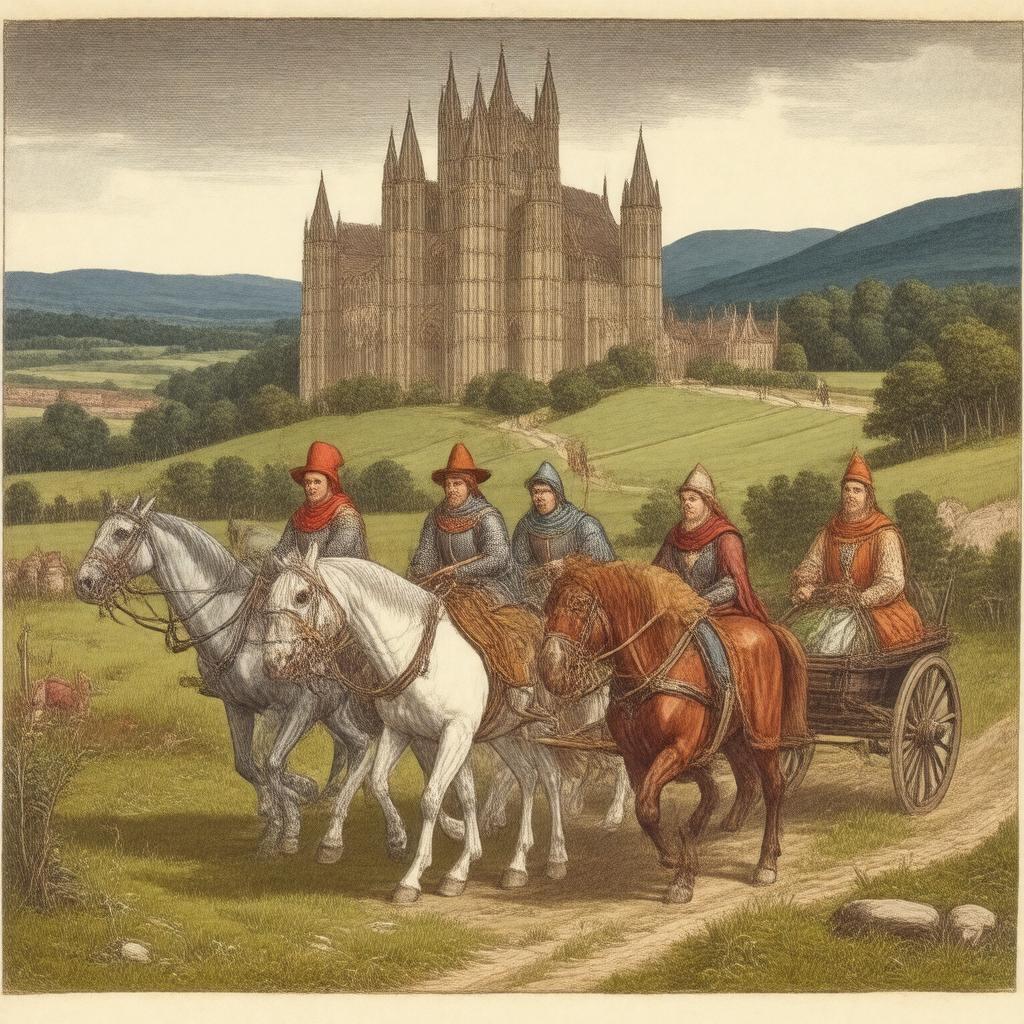Prompt
"Illustrate a medieval manuscript-style image of a group of pilgrims, including a knight, a miller, a wife of bath, and a pardoner, riding horses and walking alongside a horse-drawn cart, set against a backdrop of the Canterbury Cathedral and the English countryside, with a subtle hint of social satire and human nature themes, in a warm, earthy color palette reminiscent of 14th-century illuminated manuscripts."

